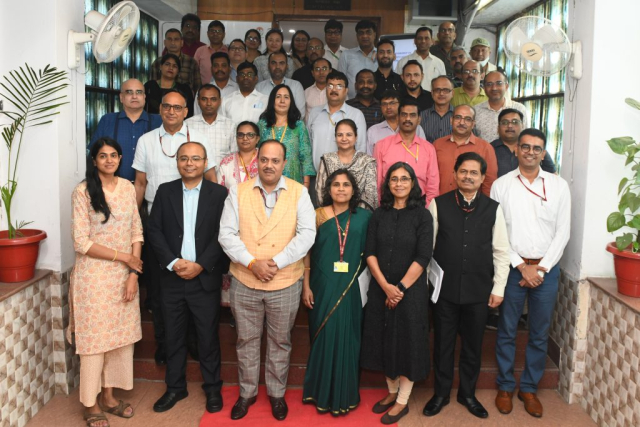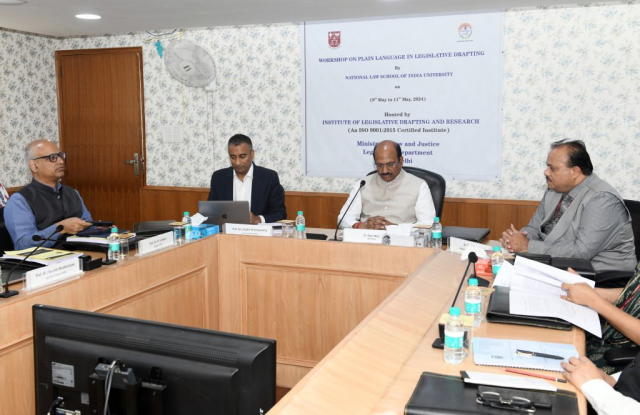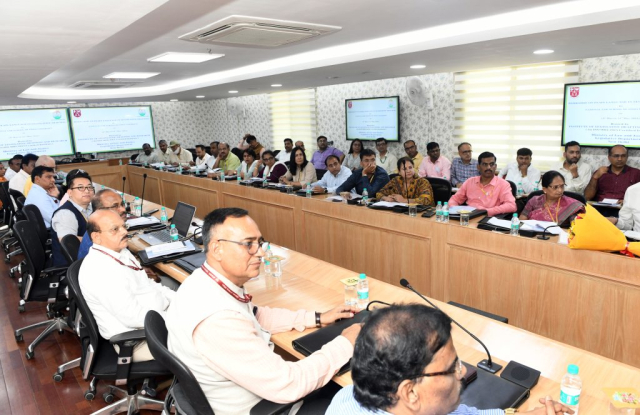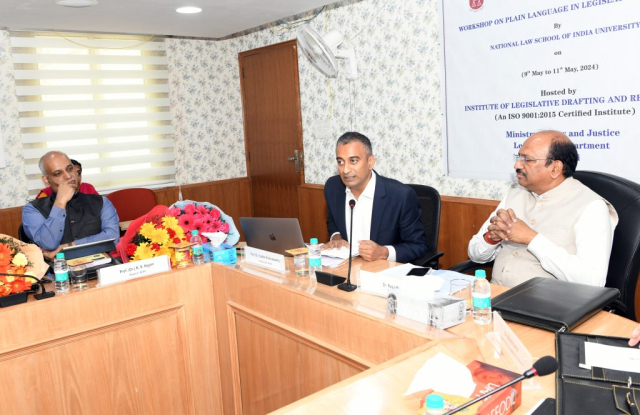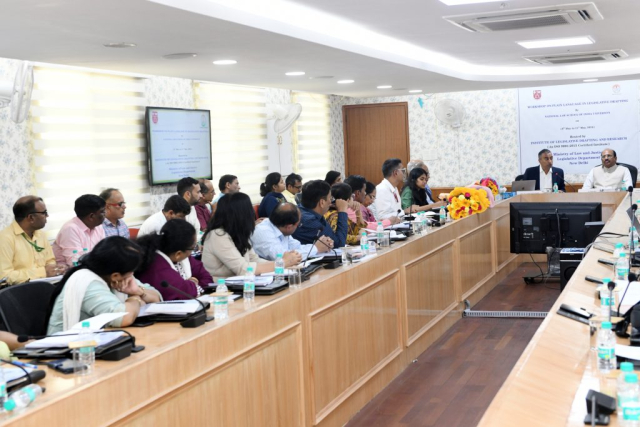NLSIU’s Workshop on Plain language in Legislative Drafting
May 9, 2024
The Department of Professional and Continuing Education (PACE), National Law School of India University (NLSIU), with the support of the Institute of Legislative Drafting and Research (ILDR), conducted a three-day intensive workshop on ‘Plain Language in Legislative Drafting’ in Delhi from May 9 to 11, 2024. The legislative officers nominated by the Legislative Department, Ministry of Law and Justice, Government of India, participated in this workshop.
The workshop was conducted by:
- Prof (Dr.) Sudhir Krishnaswamy, Vice-Chancellor, NLSIU
- Prof (Dr.) N S Nigam, Registrar, NLSIU
- Dr. Saurabh Bhattacharjee, Associate Professor of Law
- Jasmine Joseph, Assistant Professor of Law
- Aparajita Lath, Assistant Professor of Law
The key pillars of the workshop which set the framework for the conversation were:
- Enhancing Access to Law and Empowering Citizens: By using plain language, legislative drafters can ensure that the laws are accessible to a wider audience and empowers citizens to engage more effectively with the legal system.
- Promoting Rule of Law: Clear and straightforward language in legislation promotes transparency and accountability in governance and compliance with law, as citizens can easily understand their rights and obligations.
- Accuracy and Precision: Use of plain language is complementary to the goal of accuracy and precision in law-making and reduces the likelihood of ambiguity, conflict and litigation.
- Relevance of Plain-language in multi-lingual law-making: Use of plain language for enhancing access to law is inextricably connected with the quest towards multi-lingualism in law-making. The relevance of plain language is even more crucial in translations to multiple languages.
The intensive three-day workshop comprised eight sessions, each focusing on different legislative drafting aspects from word choice to the structure of legislation. Each session was structured around a combination of theoretical discussion on essential elements of plain language drafting and practical exercises. These exercises, based on a training manuals prepared by the NLS, revolved around analysis and redrafting of selected legislations. The workshop closed with a legislative drafting exercise which connected all the different sessions of the workshop and required the participants to draft a legislation based on a hypothetical policy-note.
The workshop was attended by around 65 officers of the Legislative Department, Ministry of Law and Justice. The workshop achieved its outcome of fostering intense engagement with the legislative drafters and facilitated a comprehensive and critical appreciation of the importance of plain language drafting, its utility and the associated constraints.
Gallery


